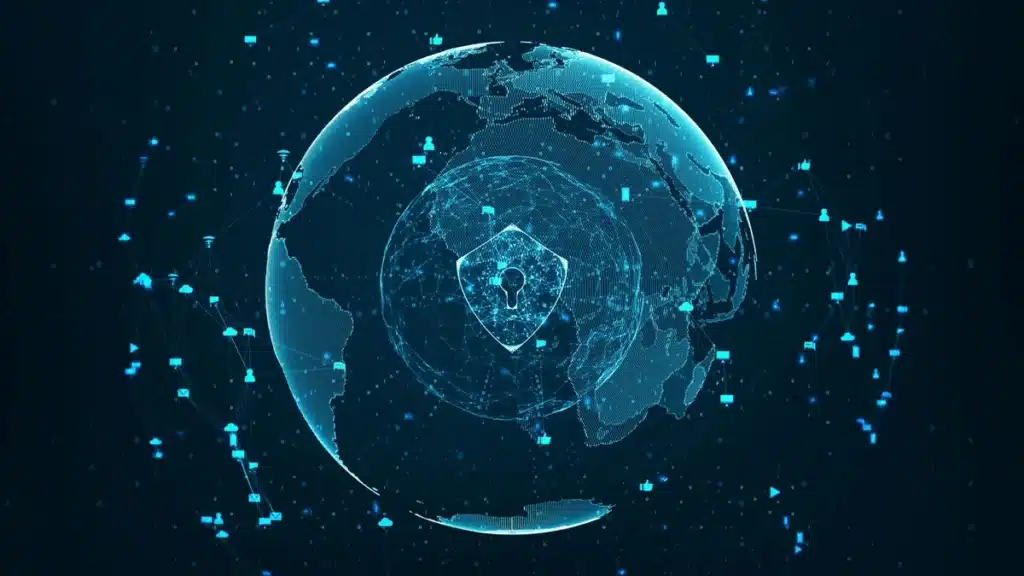Customer Acquisition Trends in a Post-Pandemic World – Author, Alex Tupman CEO

After the abrupt shift to home working in 2020, last year saw many organisations successfully adapt to digital delivery of their services. Whether they were simply accelerating an existing digital transformation or starting from scratch, many discovered that with the right technology their teams could effectively collaborate, achieve high productivity and continue to support customers virtually, from wherever they were. Customers embraced the video call as an alternative to in-person contact. Video meetings were rapidly scheduled, company backgrounds were created, and previously unused cameras were switched on. Video calls were normalised overnight in a way that wouldn’t have happened without the pandemic as a catalyst. Working virtually works Along with convenience, lower costs, and wasted travel time becoming valuable work time, we’ve got good at video calls. With a structured agenda, virtual interactions are often quicker and more efficient than face to face meetings. And with less of a social element, we get more work done. There was already a growing trend towards managing customer relationships virtually pre-Covid. Digital interactions from e-tenders to self-service capabilities were becoming the norm. At the height of the pandemic, it wasn’t just online account maintenance that customers accepted – customer acquisition was forced to go digital. Sales teams utilized many of their traditional core sales skills when meeting customers and closing deals by video and live chat interactions. But just as account teams have perfected their online craft, face to face interactions are returning.  Back to the (sanitised) handshake There are some things that just work better face to face, and customer acquisition is often one of them. While quick, regular check-ins will remain a convenient and productive option for existing customers, new clients will be less willing to sign on that initial dotted line with a digital signature when in-person meetings are a viable option once more. Business relationships are based on trust, and we instinctively prefer to look each other in the eye while we establish our first deal. While virtual interactions are ideal for maintaining existing customer relationships, there’s no doubt that it’s harder to establish new ones if the buyer and seller meet over Zoom rather than coffee. Here’s why:
Back to the (sanitised) handshake There are some things that just work better face to face, and customer acquisition is often one of them. While quick, regular check-ins will remain a convenient and productive option for existing customers, new clients will be less willing to sign on that initial dotted line with a digital signature when in-person meetings are a viable option once more. Business relationships are based on trust, and we instinctively prefer to look each other in the eye while we establish our first deal. While virtual interactions are ideal for maintaining existing customer relationships, there’s no doubt that it’s harder to establish new ones if the buyer and seller meet over Zoom rather than coffee. Here’s why:
- Complex interactive meetings work better in person. Getting a large and diverse group of stakeholders, influencers and account team members together to ensure a complete understanding of a complex situation works better face to face. It’s easier to raise points, questions and potential objections as they come up, and conversation is more fluid without the stop/start of virtual interruptions.
- You can’t properly read the Zoom room. Reading the expression of a grid of unknown thumbnail faces doesn’t always tell you what you need to know. Building rapport relies on body language, eye contact, tone of voice and other subtle non-verbal cues that tell you when a pitch or negotiation is going well (or isn’t).
- Sometimes small talk gets big results. An unguarded, off-hand comment on the way out the door can often uncover a critical point or an additional opportunity. Digital interactions don’t usually provide the time or space for that informality.
- Encouraging innovation and creative brilliance. Brainstorming a new solution to difficult customer problems often requires spontaneous and unstructured interactions. We’ve all been in the room where ideas have bounced around naturally to create something exceptional.
The Deloitte Corporate Travel Survey 2021 indicates that while we will continue to rely on virtual communication and e-commerce for simple customer transactions, business travel related to external relationships – in particular client acquisition – will be the first to return to pre-pandemic levels. But be aware – when you’ve made the journey to get that crucial signature, your client will still expect you to be fully connected with instant access to your team and resources back at the office. Those same digital resources will still be needed to support a successful return to face to face engagement. 2022: Optimizing omnichannel excellence The business landscape has changed. Accenture’s recent report, ‘A new era in customer engagement’ details how customer expectations of what constitutes basic digital capabilities have shifted permanently. Convenience, ease of access and ‘anywhere anytime’ interactions are the new normal. The winners in this new hybrid environment will be the ones who find an optimal balance of traditional channels, digital interaction and in person engagement, and move seamlessly between them to improve customer experience in a post-pandemic world. Being agile and responsive gives you the fluidity you need to support your clients in a fast, efficient way. Mode’s fully managed IT and digital workspace solutions combine multiple business communication tools, utilising the power of the cloud. They simplify the way your teams operate, support collaborative working, and improve your business flexibility and efficiency.
Subsribe for updates and our latest research
You may be interested in
Your guide to leveraging NCE pricing to get the best value
Renewing your Microsoft Licensing Agreement is an opportunity to align your IT strategy with your business goals. It allows you to take advantage of the latest technologies, optimise costs, and ensure compliance with industry standards. While this might seem straightforward at first glance, to achieve the best value and biggest discounts, it’s often more complex than it appears and navigating the renewalprocess requires careful planning. In this Blog we will walk through what you need to know about the new Microsoft Licensing rules,when to get the best value from your renewal, and how to review…
Loving your customers with AI, cybersecurity and peace of mind with MSP support
2024 has marked a massive shift for SME IT needs, as creating an appropriate and optimised business strategy has become an increasingly difficult challenge for business owners and IT operators nationwide.
Protect your student data from continued ransomware attacks, says Espria
With ransomware rates still high for education organisations, better security oversight and orchestration is needed across UK schools.
Fortify and Reassure with Compliance and Cybersecurity Synergy
With new cyber threats emerging, businesses will need to develop a seamless and blended approach to cyber and compliance for strategic success.
UK businesses cannot continue risking reputation with shoddy security, says Espria
Sophos’ 2024 Threat Report recently highlighted ransomware as the biggest existential cyber threat to small businesses. While cyberattacks on large companies and government agencies may receive more news coverage, Sophos reported that SMB’s are generally more vulnerable to cybercriminals and suffer more proportionally from the results of a breach.
Peace of mind: Cloud is key in scaling systems to your business needs
Meeting the demands of the modern-day SMB is one of the challenges facing many business leaders and IT operators today. Traditional, office-based infrastructure was fine up until the point where greater capacity was needed than those servers could deliver, vendor support became an issue, or the needs of a hybrid workforce weren’t being met. In the highly competitive SMB space, maintaining and investing in a robust and efficient IT infrastructure can be one of the ways to stay ahead of competitors.





